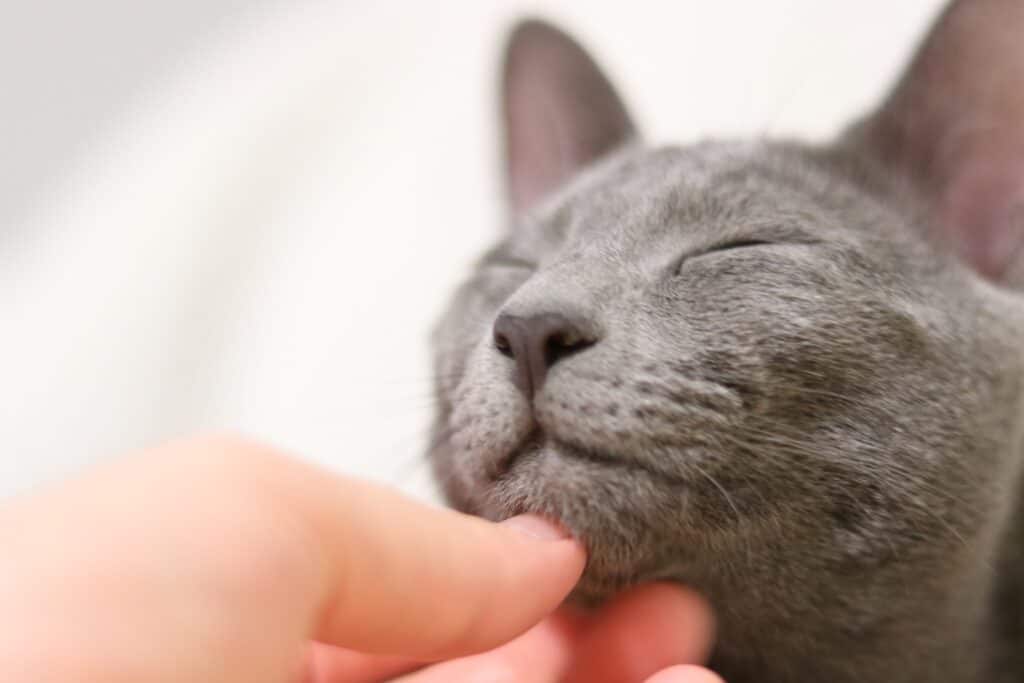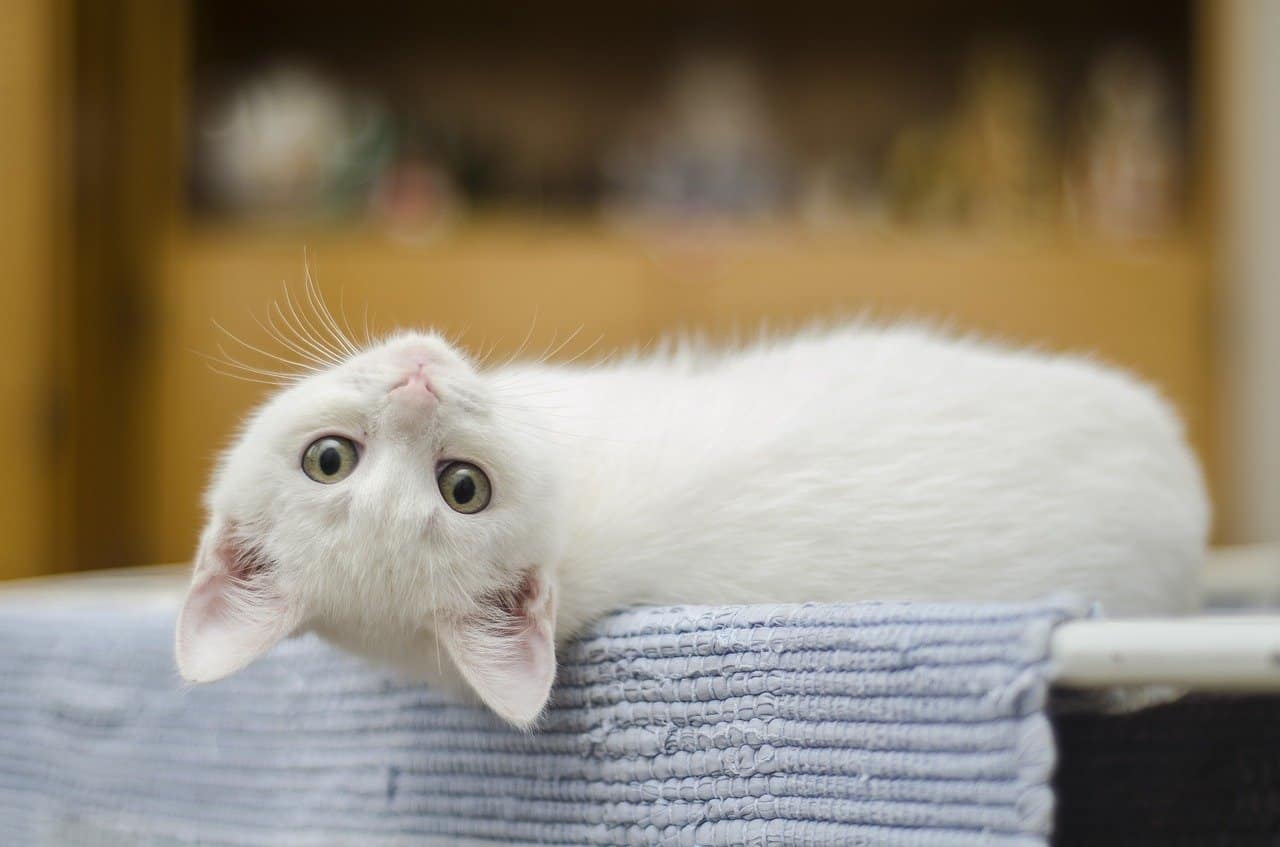We cat owners carefully choose our cat’s names because they will stay with them for their entire life. What if you adopted your cat and didn’t like her name? Is it OK to rename your cat?
In most cases, it is perfectly fine to rename a cat. When given time to get used to the change, it won’t confuse them. According to animal behavior specialists, cats don’t particularly respond to their name but rather to a range of different names or callouts. The tone of voice, body language, and gestures are just as important when addressing your cat.
According to Animal Behaviour Specialist Dr. Kersti Seksel, pets will not go into an identity crisis after a name change. The same is true for cats in and in 99% of all cases, it is fine to give your cat a name of your own choosing.
However, there are some cases that it might be best for pet owners to stick with the name that’s already given to your cat.
Should you rename your cat after adoption?
Unless you adopted a kitten, it is likely that your new fluffy companion already has a name. If you know what it is and like it, by all means, keep it.
However, the chances are that you prefer to give your adopted cat a new start with a new name, and actually, this decision is a common one.
Based on data from the Humane Society, we know that 26% of all pet cats in the US come from an animal shelter. It is common practice for those animal shelter folks to give the new arrivals a suitable name.
This may be a name that you personally don’t like, or it simply doesn’t feel right to you. Because a cat’s name is part of its identity and helps you bond with it, it’s best not to keep a name you dislike. In those cases, it’s best to rename your cat.
There is no proof to suggest that changing a cat’s name harms them. When given time to adjust, it doesn’t confuse them. For cats, the concept of a name that stays with you for life is not as important as humans.
Once they understand that this specific word refers to them, they will start to respond to it, especially when they associate their name with positivity.

Why do animal shelters name their pets?
Wouldn’t it be better to reserve the naming of these animals to their new owners?
Well, it is probably best for the cat’s new owner to name her, but pets in the shelter are living beings being cared for by humans. Apart from making sure they’re fed, these caregivers also interact with the animals, and it’s much better for bonding when the shelter animal has a name.
If the shelter takes in abused animals, giving them a new name also symbolizes a new start for the animal and removes negative associations they might have with their name.
The other reason is to help potential adopters bond with the animal. It’s much easier to fall in love with a beautiful white Siamese called “Snowflake” than it is to bond with “Cat number 532”.
It gives the animal identity, and according to Jme Thomas, Executive Director of the Motley Zoo Animal Rescue in Redmond, Washington, it helps to “market” the animal and find them a forever home much faster.
According to Thomas, if the animal already has a name given by the previous owner when it arrives at the shelter, then the name stays.
How to teach your cat its new name?
After you’ve decided to rename your cat and have settled on what it will be, you will need to invest some time and effort in teaching your cat its new callsign.
If you can’t decide, take a look at those examples of names for cats for inspiration.
Some cats pick this up faster than others, but generally, we see that it would take about two weeks time for cats to understand that you’re addressing them when using their name.
Consistency is key; for some cat’s the process may take longer than for others. Keep on using the new name when talking to your cat or addressing her until it ‘clicks’ for them.
The tips below might help you to speed up the process;

- Cat names with hard consonants or accented vowels are easy for cats to remember – Names like “Missy”, “Eilleen”, or “Freaky” are good sounding names for cats (although these are dreadful names and you should go for something more creative than this).
- If you know their previous name, use it in conjunction with the new name for a while – This is a good way to train your cat and switch over gradually. If, for example, the original name was Peter and you’re switching to Snowflake, call your cat by “Peter-Snowflake” and gradually drop Peter over the course of 2 weeks’ time.
- Associate your cat’s new name with positivity – Cats learn words by association, and their names are no exception. Using their (new) name in conjunction with positive things will speed up the process of your cat responding to their new name.
- Emphasize your words with non-verbal language – Cats are very susceptible to non-verbal communication, and they’re good at reading us. Therefore, it’s important to associate their name with positive non-verbal cues such as positive, non-threatening gestures, smiles, and soothing tone of voice when using their name.
When should you not rename a cat?

Although very few, there are reasons why it might be better not to rename a cat. Not because it might be harmful to your cat, but because for some cats, it’s harder to get used to a new name.
Just after you adopted them – This is especially the case for cats taken from a shelter. Although it’s an exciting time for you, they are usually nervous and apprehensive. Give your new companion time to get to know you and its new surroundings. Don’t overwhelm them with a new name directly. Once they’ve settled into their new lives, then go for a name change if you want.
When your cat is older –For elderly cats it might be difficult to learn new things, and they will have a harder time getting used to their new name. Changing their name might complicate and lengthen the process of settling in their new home in that case.




